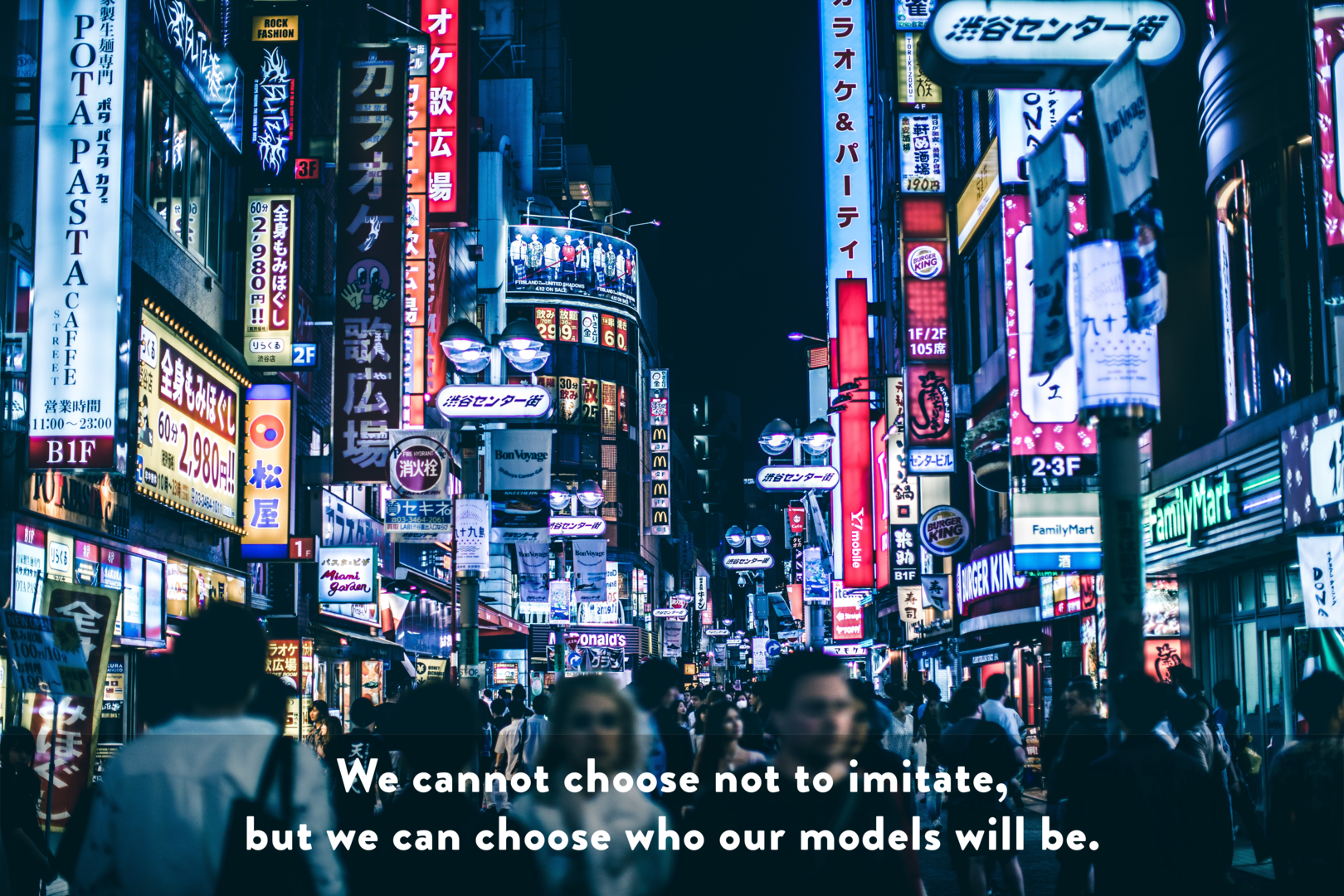Imitation dominates childhood. As children we are incredibly busy absorbing the world around us so that we can become competent, fully-functioning adults in the culture into which we were born. We are formed in the image of our culture. But we also come with our own genetic makeup and occupy a unique place in the space-time continuum where we have experiences that are ours alone.
This intersection of our bodies in time and space with our mimetic abilities is what makes us who we are. It’s not nature vs. nurture but the incredible possibilities that emerge from the intersection of the two.
Take note, friends: The people in the photo above are not actually modeling the product like the beverage in their glasses, the restaurant or vacation destination – no! What they are modeling is their desire for those things for us to imitate. When we take their desire as our own, we make the purchase because we want to be popular and have lots of cool friends just like they do.
According to Girard, our desire is always mediated by friends and acquaintances, celebrities, movies, popular trends – something that gives our desire direction. He says it quite simply: we desire according to the desire of another. Because all desire is mimetic it always involves a model. So far so good.

“Be imitators of me, as I am of Christ.” – 1 Corinthians 11:1

In case it isn’t, think about advertisers and how they direct our attention to their product. They know that what really gets us interested in wanting something is if someone else wants it first. Preferably someone we admire and want to be like. So they show us popular, happy, self-confident people wanting the thing that, should we own it, will make us popular, happy and self-confident too. Or they hire celebrities, who already have our attention because they seem to have all those elusive qualities we want, to model their desire for the thing, so we will want the thing, too.
What all this is leading to is the real truth about desire. Desire for a thing is not about the thing at all. It’s about acquiring what the thing represents, which is the personality and charisma of the model. Have you ever suffered from buyer’s remorse? That sick feeling you get a few days after you bought that pair of shoes or designer sunglasses you absolutely had to have even though you so could not afford them?
That’s reality hitting that the sunglasses are nothing more than sunglasses and the thrill of owning them, the hope that somehow they would make you into a different person, was a false hope. Fancy eyewear will not improve your popularity rating (okay, maybe just a little!), but they can’t satisfy the longing you feel inside for something more meaningful in your life. You know it, in fact you knew it before you bought the damn things. Which is why you made sure the vendor had a full refund return policy.
The Olive
Branch
Take A Breath with Us
Our weekly newsletter creates a space to take a breath. Once we slow down, we can see the way desire, imitation, and conflict operate in our lives and in the world, and begin to create peace. In addition to the newsletter, you will receive the free "Unlearn the Bible" ebook when you subscribe.
The key to getting the most benefit out of your mimetic ability is to remember this one simple rule: We cannot choose not to imitate, but we can choose who our models will be.
There will always be someone between you and the object of your desire. Just be sure that they are not selling you a bill of goods. You want the real thing. So did the Corinthians, which is why Paul advised them to take him, Paul, as their model. It’s not because Paul was arrogant and a little full of himself – he gave that advice because he understood the role of imitation in learning how to orient our desires.

